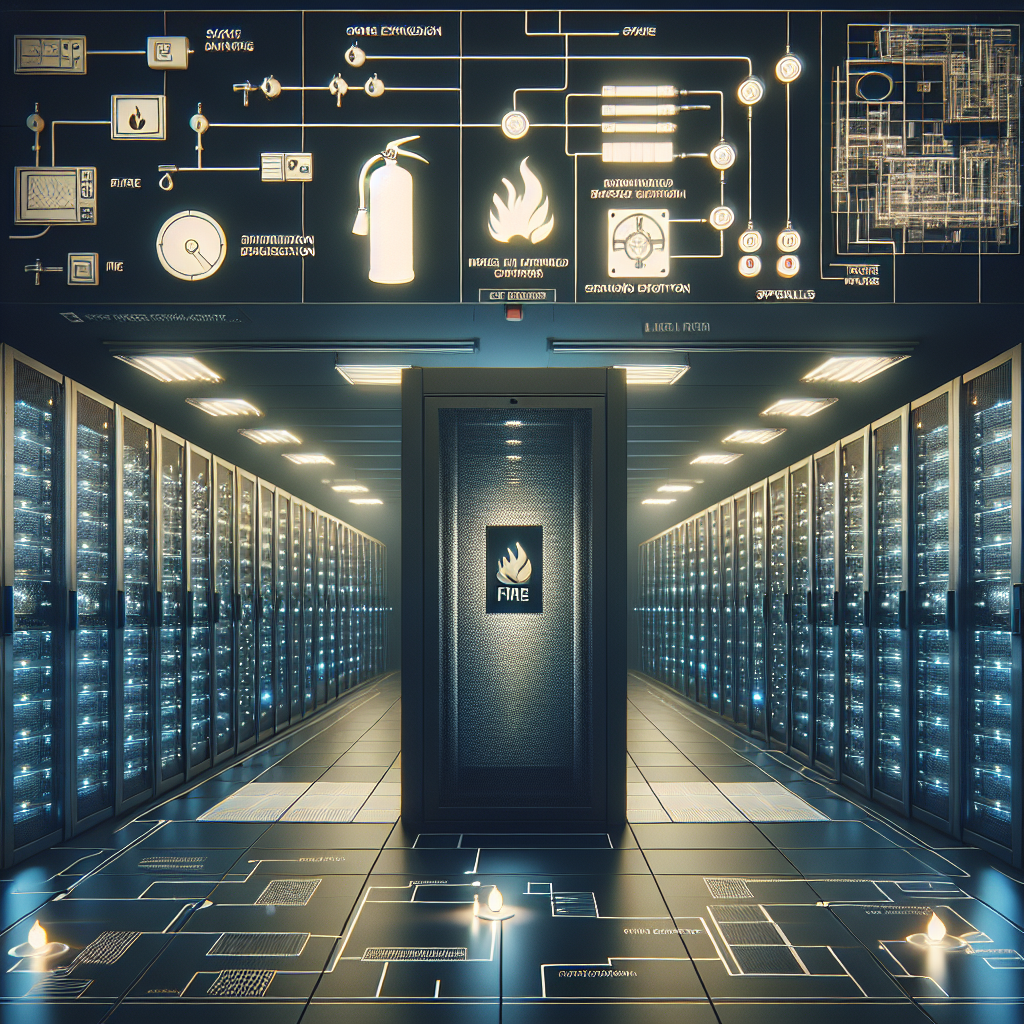Your cart is currently empty!
Fire Prevention Strategies for Data Centers: A Comprehensive Guide

Data centers are the backbone of modern businesses, housing critical IT infrastructure and sensitive data. However, these facilities also pose a significant fire risk due to the high concentration of electrical equipment and wiring. Therefore, it is crucial for data center operators to implement robust fire prevention strategies to protect their assets and ensure business continuity. In this comprehensive guide, we will discuss key fire prevention measures that can be implemented in data centers to mitigate the risk of fire and minimize potential damage.
1. Conduct Regular Inspections and Maintenance: Regular inspections of electrical systems, wiring, and equipment are essential to identify potential fire hazards and address them promptly. It is important to schedule routine maintenance and testing of fire detection and suppression systems, as well as HVAC systems, to ensure they are functioning properly.
2. Install Fire Detection and Suppression Systems: Data centers should be equipped with an advanced fire detection system that can quickly identify the presence of smoke or fire. Automatic fire suppression systems, such as sprinklers or gas-based systems, should also be installed to extinguish fires before they spread.
3. Implement Proper Cable Management: Proper cable management is crucial in data centers to prevent electrical fires caused by overheating or short circuits. Cables should be neatly organized and secured to prevent damage or accidental contact with other equipment.
4. Control Access and Monitor Security: Limiting access to data center facilities can help prevent unauthorized personnel from tampering with equipment or causing intentional harm. Security measures, such as surveillance cameras and access control systems, should be implemented to monitor and track who enters and exits the facility.
5. Implement Emergency Response Plans: Data center operators should develop comprehensive emergency response plans that outline procedures for evacuating personnel, contacting emergency services, and managing fire incidents. Regular drills and training exercises should be conducted to ensure all staff are prepared to respond effectively in case of a fire.
6. Maintain Adequate Clearance: It is important to maintain adequate clearance around electrical equipment and wiring to prevent overheating and reduce the risk of fire. Equipment should be properly spaced and not overcrowded to allow for proper ventilation and cooling.
7. Monitor Temperature and Humidity Levels: Monitoring temperature and humidity levels in data center facilities is essential to prevent overheating and reduce the risk of fire. Automated monitoring systems can alert operators to any abnormal fluctuations in temperature or humidity that may indicate a potential fire hazard.
In conclusion, fire prevention is a critical aspect of data center operations that should not be overlooked. By implementing the above-mentioned strategies and investing in advanced fire detection and suppression systems, data center operators can effectively mitigate the risk of fire and protect their valuable assets. Regular maintenance, training, and vigilance are key to ensuring the safety and security of data center facilities.

Leave a Reply